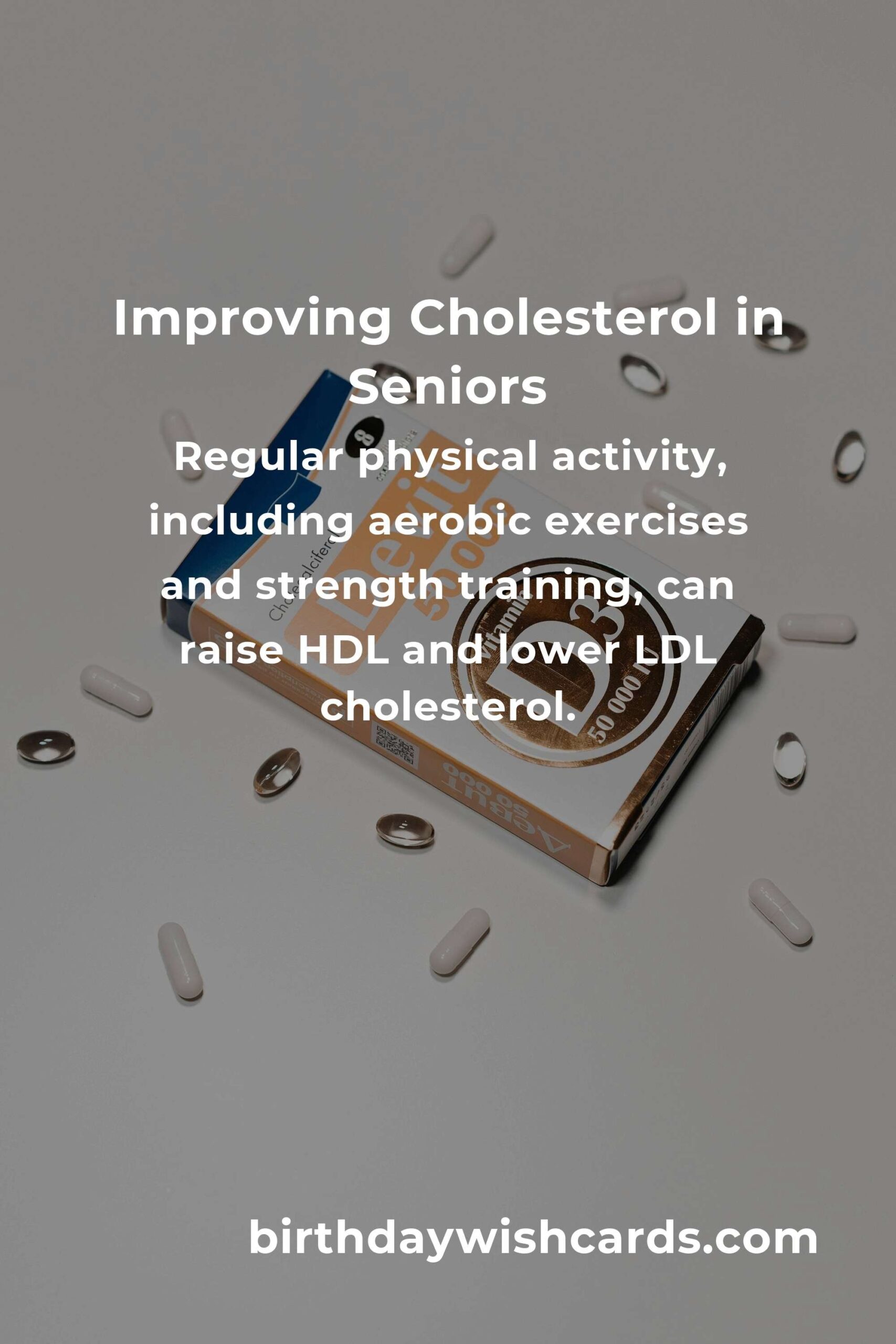
As we age, maintaining a healthy cholesterol level becomes increasingly important for overall well-being. Cholesterol, a waxy substance found in your blood, is essential for building healthy cells, but high levels can increase the risk of heart disease. For seniors, managing cholesterol is crucial to ensuring a healthy and active lifestyle. This article will explore various ways seniors can improve their cholesterol levels through diet, exercise, and lifestyle changes.
Understanding Cholesterol and Its Impact
Cholesterol is classified into two types: low-density lipoprotein (LDL) and high-density lipoprotein (HDL). LDL, often referred to as ‘bad’ cholesterol, can build up in the walls of your blood vessels, leading to blockages. HDL, or ‘good’ cholesterol, helps remove LDL from the bloodstream. For seniors, maintaining a balance between these is key to cardiovascular health.
Dietary Changes to Improve Cholesterol
One of the most effective ways to manage cholesterol levels is through diet. Incorporating heart-healthy foods can help reduce LDL and increase HDL levels.
Increase Fiber Intake
Foods rich in soluble fiber, such as oats, beans, lentils, fruits, and vegetables, can help reduce the absorption of cholesterol in the bloodstream. Aim for a diet high in fiber to support healthy cholesterol levels.
Choose Healthy Fats
Replace saturated fats found in red meat and dairy products with healthy fats such as those found in olive oil, avocados, and nuts. These fats can help improve your cholesterol profile.
Limit Dietary Cholesterol
While dietary cholesterol has a smaller impact on blood cholesterol levels, it’s still wise to limit foods high in cholesterol, such as organ meats and full-fat dairy products.
Incorporate Omega-3 Fatty Acids
Omega-3 fatty acids, found in fatty fish like salmon, mackerel, and sardines, can help lower triglycerides and improve heart health. Consider adding fish to your diet at least twice a week.
Exercise and Physical Activity
Regular physical activity can help raise HDL cholesterol and lower LDL cholesterol. For seniors, incorporating exercise into daily routines doesn’t have to be strenuous.
Engage in Aerobic Exercise
Activities such as walking, swimming, or cycling can be beneficial. Aim for at least 150 minutes of moderate aerobic exercise each week.
Include Strength Training
Strength training exercises, such as lifting weights or using resistance bands, can also help improve cholesterol levels and maintain muscle mass as you age.
Lifestyle Changes for Better Cholesterol
In addition to diet and exercise, certain lifestyle changes can contribute to healthier cholesterol levels.
Quit Smoking
Smoking lowers HDL cholesterol. Quitting smoking can improve your HDL level and provide numerous other health benefits.
Limit Alcohol Consumption
Moderate alcohol consumption has been linked to higher HDL levels, but excessive drinking can lead to serious health issues. Seniors should drink alcohol in moderation, if at all.
Manage Stress
Chronic stress can negatively impact cholesterol levels. Engage in stress-reducing activities such as meditation, yoga, or deep-breathing exercises to help maintain a balanced lifestyle.
Conclusion
Improving cholesterol levels is an important aspect of senior health, contributing to reduced risk of heart disease and enhanced quality of life. By adopting a heart-healthy diet, engaging in regular physical activity, and making positive lifestyle changes, seniors can effectively manage their cholesterol levels and enjoy a healthier life.
Maintaining a healthy cholesterol level is crucial for seniors to ensure cardiovascular health.
Incorporating heart-healthy foods like oats, beans, and fatty fish can help improve cholesterol levels.
Regular physical activity, including aerobic exercises and strength training, can raise HDL and lower LDL cholesterol.
Making lifestyle changes such as quitting smoking, limiting alcohol, and managing stress can contribute to healthier cholesterol levels.
By adopting these strategies, seniors can reduce the risk of heart disease and enjoy a better quality of life.
#Cholesterol #SeniorHealth #HeartHealth #HealthyLiving #DietAndExercise












